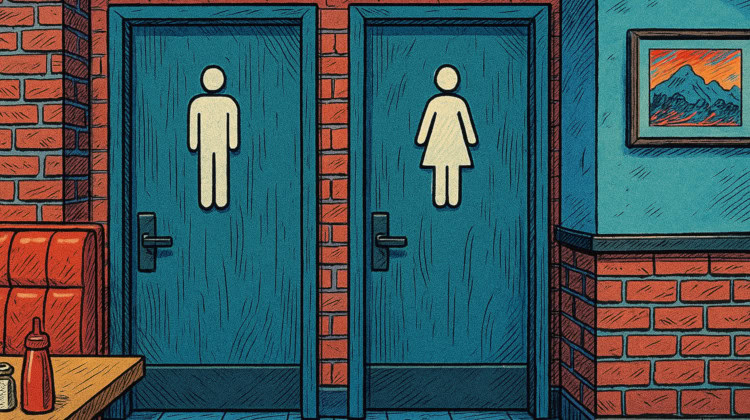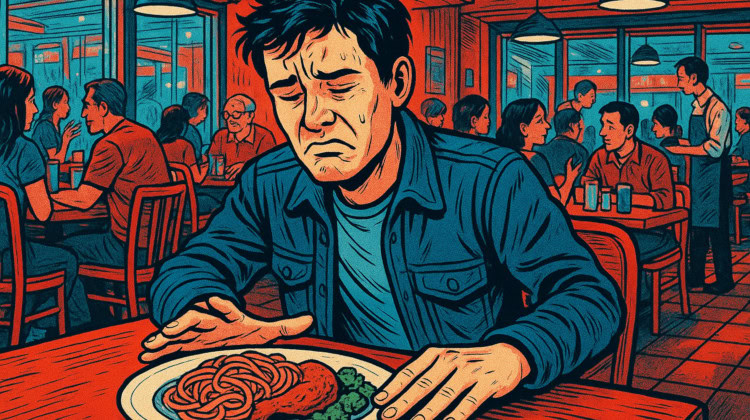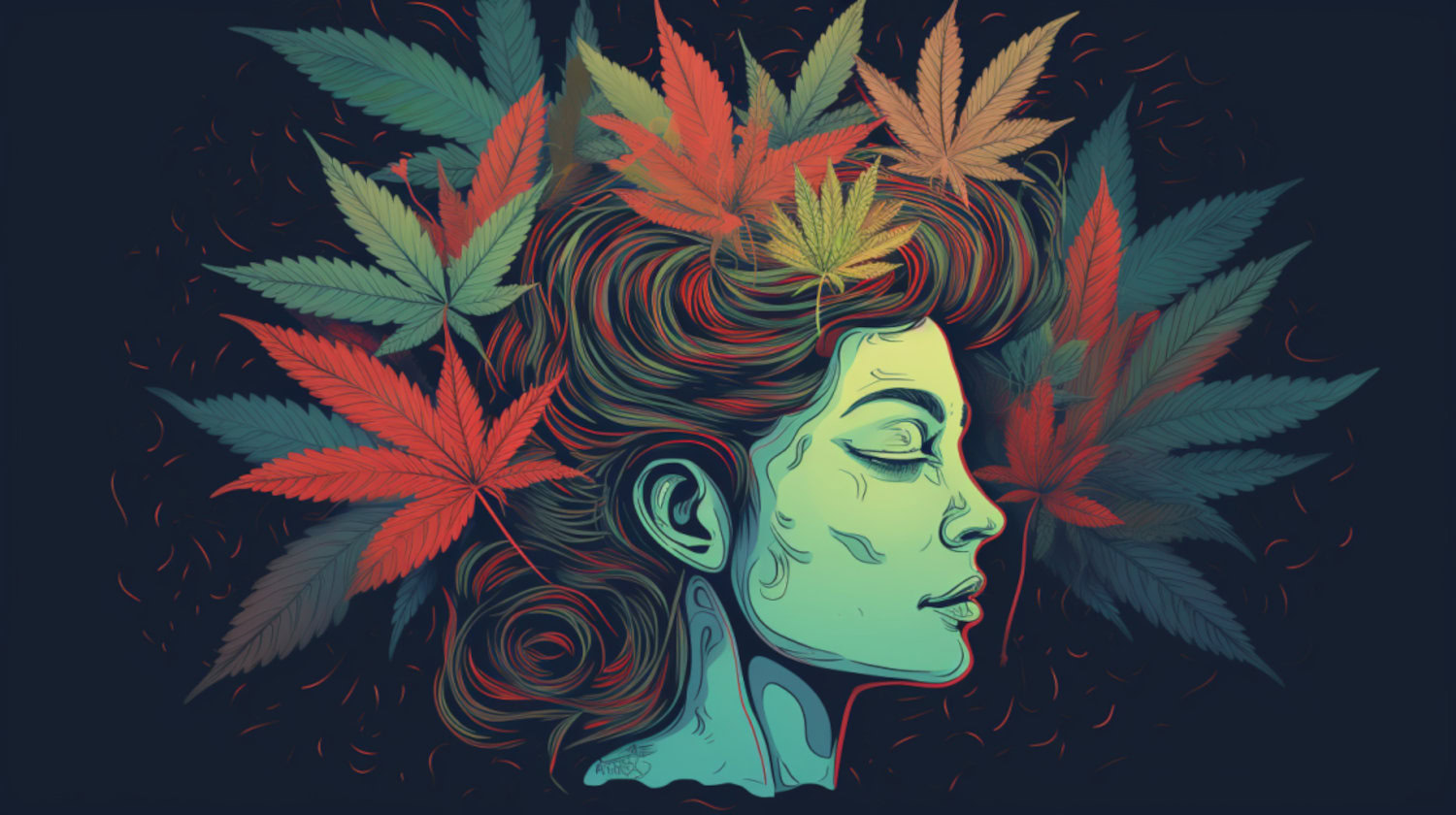In This Article
- Common Weed Withdrawal Symptoms
- Stomach Issues from Weed Withdrawal
- Why Does This Happen?
- Coping with Stomach Issues
- Loss of Appetite After Quitting Weed
- Understanding the Mechanism
- Potential Consequences
- Managing and Mitigating Effects
- Home Remedies for THC Withdrawal
- Hydration
- Physical Activity
- Nutrient-Rich Diet
- Herbal Supplements
- Meditation and Deep Breathing
- Warm Baths
- Sleep Hygiene
- Join a Support Group
- Weed Withdrawal Timeline
- Weed Withdrawal and Upset Stomach FAQ
- How long does weed withdrawal last?
- Does weed withdrawal make you throw up?
- What should you stay away from to avoid worsening stomach issues?
- Can CBD help when quitting weed?
- When should you see a doctor?
- The Road to Rebalance
- References
Key Takeaways
- ECS plays a crucial role in gut motility, gastric secretion, and inflammation.
- Many chronic cannabis users might face withdrawal symptoms, often including gastrointestinal discomfort.
- Individual experiences can vary, and factors such as usage frequency, dosage, and overall health can influence the duration.
While cannabis offers relaxation and therapeutic benefits, users must also recognize that stopping its use can lead to weed withdrawal symptoms. Though rare, the risk is real, particularly for regular, heavy users. Interestingly, women have reported experiencing more pronounced withdrawal symptoms than men, notably nausea and stomach pain.1
Common withdrawal symptoms can range from mood swings and irritability to sleep disturbances.2 Often, overlooked symptoms pertain to the gastrointestinal system, though they're not the most common and include loss of appetite after quitting weed.
Common Weed Withdrawal Symptoms
Cannabis withdrawal refers to a set of symptoms experienced when a frequent cannabis user reduces or discontinues their consumption. How intensely and how long someone feels these symptoms can be influenced by their frequency of consumption, their health, and other individual factors. The severity of symptoms can be similar to that of nicotine withdrawal, but each individual is different.3
But just how prevalent is cannabis withdrawal?
Recent research suggests that many chronic cannabis users might face withdrawal symptoms when they cut down or quit.3 As clinicians become more aware of this phenomenon, there's an increasing push for understanding and support to be offered to those undergoing the withdrawal process.
The most common reported weed withdrawal symptoms include:
- Anxiety and Restlessness: Many individuals report heightened anxiety and a pervasive feeling of discomfort or unease.
- Mood Fluctuations: This could range from feelings of irritability and anger to periods of depressed mood.
- Sleep Disturbances: This might manifest as insomnia, frequent waking during the night, or even vivid and unsettling dreams.
- Physical Symptoms: These can include headaches, chills, sweating, and, yes, stomach-related issues such as loss of appetite and stomach pain.
For many, the onset of these symptoms begins within the first week of reduced consumption. Most of these symptoms resolve themselves within a few weeks.
Many people may experience similar symptoms a day after first-time, moderate, or heavy cannabis use. These lingering side effects are better known as weed hangovers.
Stomach Issues from Weed Withdrawal

While it's commonly known that cannabis can stimulate a person’s appetite, also known as the "munchies," what's less discussed is how discontinuing its use can lead to a host of stomach-related problems.
When a frequent cannabis user decides to reduce or quit, they might find themselves grappling with some gastrointestinal discomfort.2 Here’s a closer look at these weed withdrawal stomach issues and why they might occur:
- Loss of Appetite: One of the most immediate effects many report is a sudden drop in appetite. Without the hunger-stimulating properties of cannabis, food might seem unappealing, which can lead to weight loss in some cases.
- Nausea and Vomiting: Some individuals experience nausea and, in more extreme cases, vomiting. This can be distressing, especially when trying to eat or keep food down.
- Stomach Cramps: Abdominal pain or cramping is another symptom reported by some during the withdrawal process, ranging from mild to severe.
- Digestive Discomfort: Cannabis plays a role in regulating the speed at which food moves through the digestive tract.4 Withdrawal can, therefore, sometimes lead to constipation or, conversely, diarrhea after quitting weed.
Why Does This Happen?
The human body's endocannabinoid system (ECS) includes receptors that interact with cannabinoids found in cannabis. This system is involved in regulating various physiological processes, including appetite, digestion, and mood.
When a person uses cannabis regularly, the body becomes used to a certain level of cannabinoids. Additionally, the ECS plays a crucial role in gut motility, gastric secretion, and inflammation, all of which are vital for maintaining digestive health.5 When cannabis is suddenly removed from the equation, it may throw off this delicate balance, leading to the previously mentioned digestive symptoms.
Coping with Stomach Issues
For those experiencing these symptoms, it can be helpful to maintain a bland diet for a few days, avoiding overly spicy, greasy, or acidic foods. Drinking plenty of water, consuming herbal teas like ginger or peppermint, and taking over-the-counter antacids can also provide relief.
While these symptoms might be uncomfortable at first, they are usually temporary, reducing in intensity over the next few days and weeks. However, if they persist or become severe, consulting with a healthcare professional is recommended.
Loss of Appetite After Quitting Weed
A hallmark side effect of cannabis use is the stimulation of appetite, although some strains have been reported to reduce appetite. When a frequent cannabis user decides to quit or reduce consumption, a notable loss of appetite can occur. This change in appetite can be concerning for some, especially if it leads to unintentional weight loss or nutrient deficiencies.
Understanding the Mechanism
The active compound in cannabis, delta-9 tetrahydrocannabinol (THC), interacts with the body’s ECS. This system plays a vital role in many processes, one of which is regulating appetite. When THC interacts with CB1 receptors, particularly in the brain, it often leads to an increase in hunger.5 This is why, after consuming cannabis, users might feel an insatiable urge to snack.
When one ceases cannabis use, the sudden lack of THC can throw off the ECS’s balance.6 This disruption may lead to diminished hunger cues, making food seem unappealing or even causing a person to forget to eat.
Potential Consequences
- Unintentional Weight Loss: Without the appetite-stimulating effect of cannabis, some individuals might eat far less than usual, leading to weight loss after quitting weed. However, it’s important to note that regular cannabis use has been associated with a lower body mass index (BMI).7
- Nutrient Deficiencies: If this loss of appetite continues for a prolonged period, it can result in nutrient deficiencies, as the individual may not consume a balanced variety of foods.
- Mood Changes: Food not only provides essential nutrients but also plays a role in mood regulation. A decrease in food intake can, in some cases, contribute to mood swings or feelings of depression.8
Managing and Mitigating Effects
- Small, Frequent Meals: Instead of trying to consume three large meals, aim for five to six smaller meals throughout the day. This can be easier on a reduced appetite and ensures a more consistent nutrient intake.
- Nutrient-Dense Snacks: Opt for foods high in nutrients. Examples include nuts, seeds, avocados, and yogurt.
- Hydration: Even if you don't feel like eating, ensure you drink enough. Sometimes, smoothies or shakes can be a palatable way to get both hydration and nutrients.
- Seek Medical Advice: If the loss of appetite persists for an extended period or if weight loss becomes significant, consult with a healthcare professional. They can provide guidance and may recommend appetite stimulants or other interventions.
- CBD: While more research is needed, preliminary results suggest that the use of CBD may help reduce cannabis withdrawal symptoms.9
Home Remedies for THC Withdrawal

THC withdrawal can still pose challenges for individuals attempting to cut back or quit cannabis. From sleep disturbances to mood changes, the symptoms can be varied. There are many home remedies and tactics out there that can help smooth out the journey and make the whole withdrawal phase easier to handle.10
If you experience severe or long-lasting withdrawal symptoms, contact your doctor for support. While symptoms of cannabis withdrawal are generally considered to be minor when compared to other substances, it’s best to exercise caution.
The information in this website, including but not limited to images, graphics, text and other materials, is included for informational purposes only. None of the material on this site is intended to substitute for professional medical advice. Always seek advice from your qualified physician or healthcare provider if you have questions before starting any new healthcare regimen, and never disregard professional medical advice based on anything you read on this website or any other website.
This information, including images, is not medical advice. Consult a physician before starting or stopping medications or herbs, including cannabis. Information not evaluated by FDA and not intended to diagnose, treat, cure, or prevent disease.
Hydration
Dehydration can exacerbate feelings of fatigue and headache, which are common withdrawal symptoms. Drink plenty of water throughout the day. Herbal teas, especially non-caffeinated varieties like chamomile, can also be soothing.
Physical Activity
Exercise releases endorphins and endogenous cannabinoids, anandamide and 2-AG. Engaging in regular, moderate exercise is speculated to help boost these endocannabinoids, relieving the symptoms associated with cannabis withdrawal.11 Walking, jogging, yoga, and swimming are all good options. Find something you enjoy to make it a sustainable habit.
Nutrient-Rich Diet
A balanced diet can support the body during the withdrawal process and mitigate some symptoms, like mood swings. Consume whole foods such as fruits, vegetables, lean proteins, and whole grains. Omega-3 fatty acids found in flaxseeds and fish can be especially good for brain health.
Herbal Supplements
Certain herbs have properties that can ease anxiety, promote sleep, and support overall well-being. Consider using the following herbs:
- Valerian Root: Known for its sleep-promoting qualities.
- Passionflower: Can aid in reducing anxiety.
- St. John’s Wort: Often used as a natural remedy for depression. However, be cautious and consult with a doctor, as it can interact with certain medications.
- Ginger Root: Known to ease digestive issues and nausea.
Meditation and Deep Breathing
Stress and anxiety can be heightened during withdrawal. Practices such as meditation, deep breathing exercises, and progressive muscle relaxation can help in grounding the mind and reducing anxiety.
Warm Baths
Warm baths can assist with muscle aches and promote relaxation. Consider adding Epsom salts or essential oils like lavender for added relaxation benefits.
Sleep Hygiene
Disrupted sleep patterns are common during THC withdrawal. Establish a consistent sleep schedule, create a calming bedtime routine, and ensure the sleep environment is dark, cool, and quiet. Avoiding screens an hour before bedtime can also promote better sleep.
Join a Support Group
Having a support system can make all the difference. Look for local or online support groups where you can share experiences, challenges, and successes.
Weed Withdrawal Timeline
Knowing the timeline of THC withdrawal can help you be prepared for the various stages you might experience.12 The intensity and duration of symptoms can vary based on several factors, including
- How long a person has been using cannabis,
- Amount of cannabis being used
- Individual biology
Everyone's journey when quitting cannabis is unique. For example, adults using medical cannabis for chronic pain often experience moderate to severe symptoms. Interestingly, these symptoms stay consistent over two years, but younger users may see an escalation.13
A 2017 study looked into the course of cannabis withdrawal and found a couple of trends. The researchers noticed that cannabis withdrawal tends to take two possible courses.
- In the most common one, withdrawal symptoms intensify at first until they reach a peak–usually around day four after stopping use–and fall off fairly sharply from there.
- In the other course, symptoms just gradually lessen over time, with no uptick in severity.1
If you plan on quitting cannabis, chances are, your experience will follow one of these two patterns.
It's also worth noting that digestive symptoms tended to be milder, with mood and sleep-related symptoms appearing to be a more prominent concern during the research. However, loss of appetite was fairly pronounced in the early stages for some participants, but it rapidly subsided.
Individual experiences can vary widely. Some people might breeze through the process with minimal discomfort, while others might find a THC detox more challenging. Factors such as prior substance use, co-existing mental health conditions, and general health can all influence one's withdrawal experience. If someone finds their symptoms overwhelming or persisting beyond a month, seek professional medical advice.
Weed Withdrawal and Upset Stomach FAQ

How long does weed withdrawal last?
Weed withdrawal symptoms typically begin within the first 1-3 days after cessation, reaching peak intensity around the 2-6 day mark. The majority of symptoms, including stomach issues, generally resolve within 4-14 days. However, individual experiences can vary, and factors such as usage frequency, dosage, and overall health can influence the duration.
Does weed withdrawal make you throw up?
Yes, for some individuals, nausea and vomiting can be symptoms of cannabis withdrawal. This is particularly evident in people who have consumed cannabis in large amounts over extended periods. However, not everyone will experience this, and some may only face milder digestive issues.
What should you stay away from to avoid worsening stomach issues?
During weed withdrawal, avoid spicy, greasy, and overly acidic foods. These can irritate the stomach. Additionally, cutting back on alcohol and caffeine can help prevent exacerbating any gastrointestinal symptoms. Staying hydrated and opting for a bland diet can soothe the digestive tract.
Can CBD help when quitting weed?
Some have cited CBD as beneficial during weed withdrawal. It may help reduce anxiety, improve sleep, and manage other withdrawal symptoms without the intoxicating effects of THC. However, speak with a healthcare professional before adding CBD into your routine.
When should you see a doctor?
Consult a healthcare professional if the withdrawal symptoms are severe or last longer than they should. If you experience stomach pain, vomiting, dehydration, high fever, or any other worrisome symptoms that won't go away, seek medical attention.
The Road to Rebalance
While some individuals may face challenges in the transitional phase, it's encouraging to know that the body has a remarkable ability to adapt and regain balance. With the right knowledge, supportive communities, and individual resilience, going through cannabis withdrawals can become a manageable, if not empowering, journey.
References
- Bonnet U, Preuss U. The cannabis withdrawal syndrome: current insights. Substance Abuse and Rehabilitation. 2017;Volume 8:9-37. doi:https://doi.org/10.2147/sar.s109576 ↩︎
- Connor JP, Stjepanović D, Budney AJ, Le Foll B, Hall WD. Clinical Management of Cannabis Withdrawal. Addiction. 2021;117(7). doi:https://doi.org/10.1111/add.15743 ↩︎
- Kesner AJ, Lovinger DM. Cannabis use, abuse, and withdrawal: Cannabinergic mechanisms, clinical, and preclinical findings. Journal of Neurochemistry. 2021;157(5):1674-1696. doi:https://doi.org/10.1111/jnc.15369 ↩︎
- Camilleri M. Cannabinoids and gastrointestinal motility: Pharmacology, clinical effects, and potential therapeutics in humans. Neurogastroenterol Motil. 2018;30(9):e13370. doi:10.1111/nmo.13370 ↩︎
- Farokhnia M, McDiarmid GR, Newmeyer MN, et al. Effects of oral, smoked, and vaporized cannabis on endocrine pathways related to appetite and metabolism: a randomized, double-blind, placebo-controlled, human laboratory study. Translational Psychiatry. 2020;10(1). doi:https://doi.org/10.1038/s41398-020-0756-3 ↩︎
- Aguilera Vasquez N, Nielsen DE. The Endocannabinoid System and Eating Behaviours: a Review of the Current State of the Evidence. Current Nutrition Reports. 2022;11(4):665-674. doi:https://doi.org/10.1007/s13668-022-00436-x ↩︎
- Ross JM, Pacheco-Colón I, Hawes SW, Gonzalez R. Bidirectional Longitudinal Associations Between Cannabis Use and Body Mass Index Among Adolescents. Cannabis Cannabinoid Res. 2020;5(1):81-88. Published 2020 Feb 27. doi:10.1089/can.2019.0091 ↩︎
- Singh M. Mood, food, and obesity. Front Psychol. 2014;5:925. Published 2014 Sep 1. doi:10.3389/fpsyg.2014.00925 ↩︎
- Cleirec G, Desmier E, Lacatus C, et al. Efficiency of Inhaled Cannabidiol in Cannabis Use Disorder: The Pilot Study Cannavap. Frontiers in Psychiatry. 2022;13. doi:https://doi.org/10.3389/fpsyt.2022.899221 ↩︎
- Hodgins DC, Stea JN. Insights from individuals successfully recovered from cannabis use disorder: natural versus treatment-assisted recoveries and abstinent versus moderation outcomes. Addiction Science & Clinical Practice. 2018;13(1). doi:https://doi.org/10.1186/s13722-018-0118-0 ↩︎
- Brellenthin AG, Koltyn KF. Exercise as an adjunctive treatment for cannabis use disorder. The American Journal of Drug and Alcohol Abuse. 2016;42(5):481-489. doi:https://doi.org/10.1080/00952990.2016.1185434 ↩︎
- Budney AJ, Moore BA, Vandrey RG, Hughes JR. The time course and significance of cannabis withdrawal. Journal of Abnormal Psychology. 2003;112(3):393-402. doi:https://doi.org/10.1037/0021-843x.112.3.393 ↩︎
- Coughlin LN, Ilgen MA, Jannausch M, Walton MA, Bohnert KM. Progression of cannabis withdrawal symptoms in people using medical cannabis for chronic pain. Addiction (Abingdon, England). 2021;116(8):2067-2075. doi:https://doi.org/10.1111/add.15370 ↩︎
The information in this article and any included images or charts are for educational purposes only. This information is neither a substitute for, nor does it replace, professional legal advice or medical advice, diagnosis, or treatment. If you have any concerns or questions about laws, regulations, or your health, you should always consult with an attorney, physician or other licensed professional.




